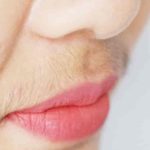One of the hygiene habits taught to us when we are young is to wash our hands with soap and water. Hand washing is an effortless and straightforward way to prevent the accumulation and transmission of infections and diseases.But unfortunately, in our daily lives, many of us don’t wash their hands as usually as they need to, or don’t wash our hands with the right technique.
An observational study published in 2010 revealed that only 85% of older people wash their hands in public services, compared to 77% in 2007.
This 85 %, is the highest amount observed since these studies, conducted under the auspices of the American Society for Microbiology and the American Cleaning Institute, as of 1996.
This study was conducted in six locations in four U.S. cities. It turned out that men are worse off than women when it comes to hand washing, according to the study. Only 77% of men scrub their hands, compared to 93% of women.
Fortunately, however, these two numbers are more improved compared to the last 2007 survey. In the previous study, only 66% of men and 88% of women washed their hands.
The importance of handwashing
Keeping your hands clean is one of the best ways to avoid disease and transmit bacteria to other people. Many diseases and bacteria, spread by people who don’t wash and scrub their hands with soap and clean running water.
Hand hygiene is now considered one of the most essential elements for controlling infections. A 2008 study in the Cochrane Systematic Review Database found that hand washing can reduce diarrhea events by about 30%.
Another 2008 study published in the American Journal of Public Health reported that hand hygiene was specifically effective against gastrointestinal infections; And less effective against respiratory infections.
What are the best times to wash your hands?
Your hands get dirty quickly because you touch people, surfaces and objects during the day and as a result, bacteria accumulate on your palms.
When you touch your eyes, nose or mouth with these dirty hands, the bacteria easily enter your body, and you can become sick as a result.
While it is impossible to keep you free of bacteria at all times, washing your hands frequently is one of the best ways to limit the transfer of other bacteria, viruses and microbes into your body and other people.
But you must also remember that excessive hand washing is also unhealthy for you.
These are the 12 situations in which you must wash your hands:
- Every time you leave the bathroom.
- When treating a wound or sabotage.
- Before and after you prepare food or eat.
- Before handling meat, fish or chicken before cooking.
- When you return to the house after staying outside.
- Before and after you treated a sick person.
- Before and after you changed a toilet or helped your child use the bathroom.
- After spending time with your pet company or cleaning up animal waste.
- After you have dumped the garbage or picked up the trash.
- After using home detergents and chemicals in your yard.
- After you have sneezed or coughed into your palms and after washing your nose.
- Before inserting or removing lenses.
This is the right technique to wash your hands
To enjoy the benefits of handwashing, it is essential to do it properly. Wash your hands according to the following steps and maintain your hygiene best.
1. Flowing water
Wet your hands thoroughly with clean, running water. Allow your hands to get well. You can use hot or cold water. Avoid boiling water, as they will dry the skin of your palms.
2. Soap
Now close the water tap and spread the soap on your palms. You can use hard, liquid soap or powder. You don’t need to use anti-bacterial soap, as it has not been proven effective in removing all bacteria.
3. Beat the soap well
Rub your hands one at a time to whisk the soap properly. Scrub the back of your palms, between your fingers, your fingertips under your nails and around your wrists.
4. Scrub well
Scrub your hands with the soap for at least 20 seconds. So that the foam removes the bacteria that accumulate in the pores of your palms.
5. Be thorough
Rinse your hands thoroughly under the clean tap water. Make sure you thoroughly wash all the soap from your hands.
6. Wipe your hands
When you are done washing your hands, close the tap after removing all the soap from your palms and wrists, take a clean towel and dry your hands properly.
It is, now your hands well washed, smells excellent and free of all kinds of harmful bacteria. Now you can prepare food, eat, touch your eyes, nose and mouth, embrace your children and loved ones with absolute knowledge: you will not transmit harmful bacteria to them.



